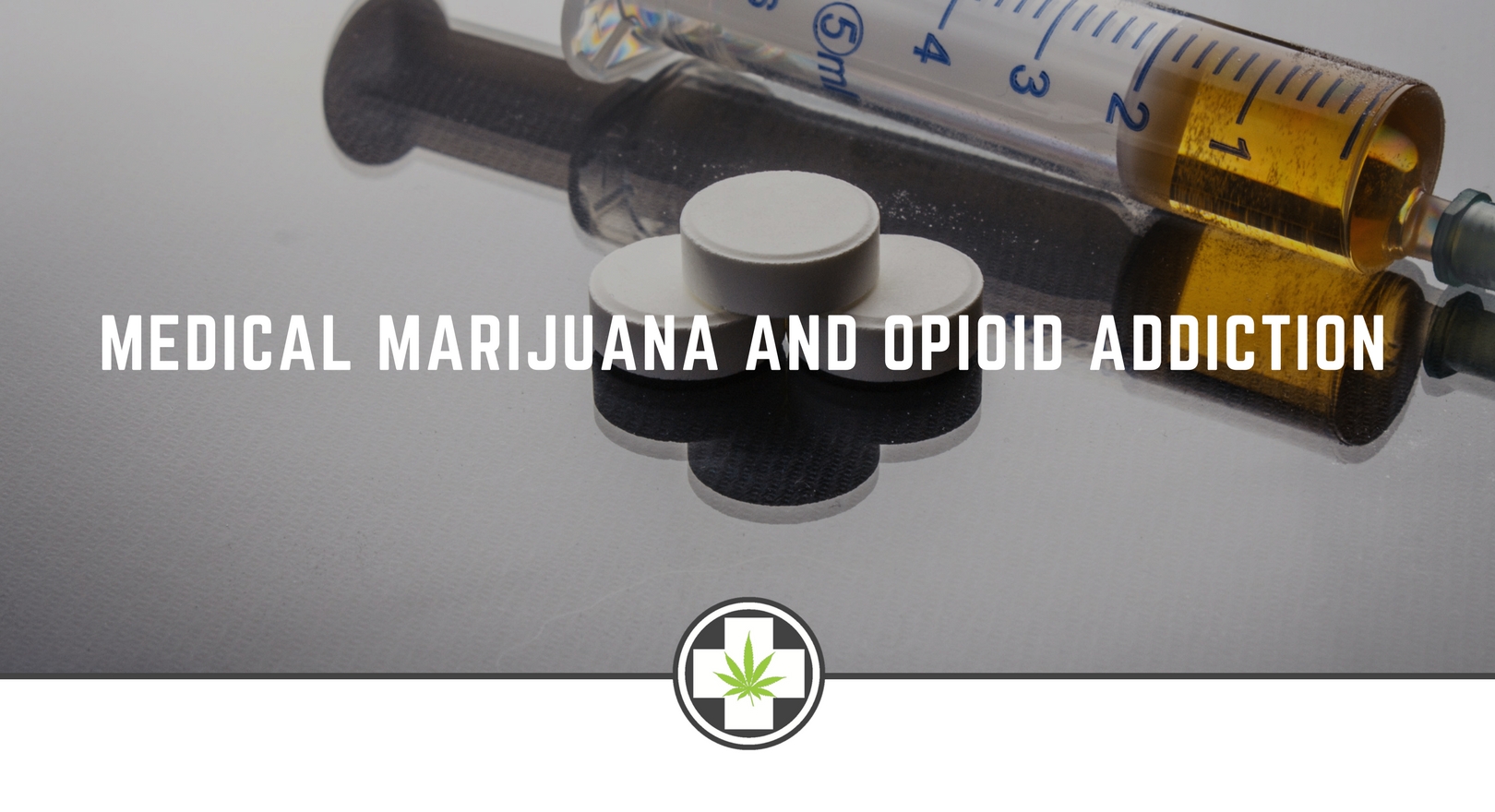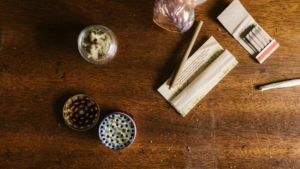Medical Marijuana and Opioid Addiction
Over 30,000 Americans died from opioid overdose in 2015.
That’s 600 people a week. It’s rightfully being called an “epidemic.”
The thing is…we didn’t just get here gradually. The body count didn’t go up, one by one, over the years, until we finally reached over 30,000.
No, opioid use has skyrocketed within a very short period of time. And the pharmaceutical industry deserves a lot of the blame.
The irony? Medical marijuana could be a viable treatment for opioid addiction and prevention.
That’s right: marijuana. The drug that has been demonized for decades as a “gateway” drug. Some researchers, doctors, and journalists believe it could be a gateway that leads away from harder drug use.
Anti-drug crusaders like AG Jeff Sessions don’t believe medical marijuana and opioid addiction belong in the same sentence.
The science says otherwise, and so do we. Medical marijuana and opioid addiction do have a connection: just not the one people immediately assume.
If you’re currently struggling with opioid addiction, keep reading to learn how medical marijuana might be able to help you.
What are Opioids?
Opioids are drugs that act on our nervous system in order to relieve pain.
Remember: many of the opioids responsible for this epidemic are perfectly legal and can be prescribed by doctors. This includes drugs such as:
- oxycodone
- hydrocodone
- codeine
- morphine
- fentanyl (which is sometimes 50 to 100 times stronger than heroin)
The most commonly-known illegal opioid is heroin.
How Do Opioids Work?
Opioids bind to opioid receptors in your brain and throughout your body.
- Your Limbic System – The limbic system manages your emotions. When opioids affect the limbic system, you feel pleasure, relaxation, and contentment.
- Your Brain Stem – Your brain stem controls automatic body functions such as your breathing. Opioids can slow down your breathing rate and eliminate coughs.
- Your Spinal Cord – By affecting your spinal cord, opioids reduce pain sensations that are sent to your brain
What Are the Side Effects of Opioids?
Side effects can include:
- drowsiness
- dizziness
- nausea
- vomiting
- Constipation
- Sexual dysfunction
- respiratory depression
Why are Opioids Addictive?
Withdrawal
Your body produces its own natural opioids. When people take high dosages of opioids, their bodies don’t produce as much of their own natural opioids.
After all, why should it keep making something that it’s already getting for free?
And that’s why people can experience severe withdrawal symptoms when they try to quit. Their bodies don’t make enough natural opioids to pick up the slack.
Withdrawal symptoms include:
- muscle pain
- anxiety
- excessive perspiration
- insomnia
- diarrhea
- stomach cramps
- nausea
- vomiting
- high blood pressure
- rapid heartbeat
For some, these withdrawal symptoms are enough to drive people back to opioids.
Tolerance
Over time, opioids lose their power. A single dose doesn’t pack the same punch as it did when you first started taking them.
So you have to take higher doses in order to order to get the desired effects. As you take more and more, you put yourself at greater risk of overdosing.
Non-Medical Use / Recreational Use
Let’s not beat around the bush: opioids make us feel good when we use them. That’s part of their job: take away the pain and make you feel better.
In fact, opioids make us feel so good, they can become addictive for that reason alone. People might want to keep using them, even if they’re no longer feeling chronic pain.
And that’s how people wind up using them in ways they were never intended to be used.
Some opioids, such as oxycodone, have an “extended release” function. This allows the drug to work over a long period of time and prevents you from being overwhelmed by euphoria and intoxication.
But some opioid users want an instant, powerful high, so they crush and snort their pills. Or they inject them directly into their bloodstream. Users get a stronger high after doing this, but they’re also putting their lives in danger.
Why Are Opioid Overdoses So Dangerous?
Opioids affect your brain stem, which controls your breathing. If you overdose, you could stop breathing and die from asphyxiation. That risk goes up if you mix opioids with alcohol.
Some opioid users experience irregular heartbeats, which also have the potential to be fatal.
What Caused the Opioid Crisis?
This Vox video offers a great breakdown of how the opioid epidemic got to where we are today:
Here are the most important facts:
- During the 90s, the federal government and advocacy groups pressured doctors to treat pain as a “serious medical issue.” At the time, almost 100 million Americans were suffering from chronic pain.
- Drug companies like Purdue Pharma claimed that opioid painkillers were safer, more powerful, and less addictive than other types of painkillers.
- By 2012, doctors had given out 259 MILLION prescriptions for opioid painkillers; that’s enough for every adult American to get a bottle.
- Millions got hooked. In 2014, almost 19,000 people die from opioid overdoses.
- Doctors tried to pull back on these prescriptions but the damage was already done. Patients had already become addicted, and when they were unable to get more opioids from their physicians, they turned to an illegal opioid: heroin.
- Heroin overdoses have gone up by 500% since 2000. 10,000 people died of heroin overdoses in 2014.
- In 2007, Purdue Pharma pled guilty to misleading doctors, regulators, and patients about OxyContin’s potential for abuse. They shelled out $634.5 million in fines.
- Federal and state governments are finally responding. They’re funding opioid prevention and treatment programs, but we still need an alternative treatment for chronic pain.
And that’s where medical marijuana comes in.
Medical Marijuana and Opioid Addiction: What the Research Shows
- Studies show that medical marijuana can effectively treat chronic pain. Remember: it was chronic pain that got us into this mess in the first place. At the end of the day, people were searching for a powerful, effective treatment for pain. Medical marijuana offers that.
- Medical marijuana and opioid addiction are connected because of the issue of chronic pain. However, the connection ends there. Marijuana is nowhere near as a lethal as opioids. To date, there are ZERO cases of fatal marijuana overdoses. Ever. Compare that to over 30,000 opioid deaths in 2015 alone.
- Medical marijuana can ease opioid withdrawal symptoms, making it easier for people to quit them. A clinic in Massachusetts reported that three-quarters of their patients stopped using opioids after switching to marijuana.
- Opioid-related deaths dropped by 25% in states with legalized medical marijuana, as opposed to states that still outlaw it.
What This Means for Nevadans
Nevada has the fourth highest number of fatal drug overdoses in the country.
If you’re a Nevadan who’s struggling with an opioid addiction because of chronic pain, know that you’re not alone. There is hope.
Our team is available to answer any questions you may have about using medical marijuana to treat your chronic pain. Please feel free to give us a call anytime.
And if you’re ready to receive the healing benefits of medical marijuana, schedule an appointment with us today! We look forward to helping you get the right treatment.






